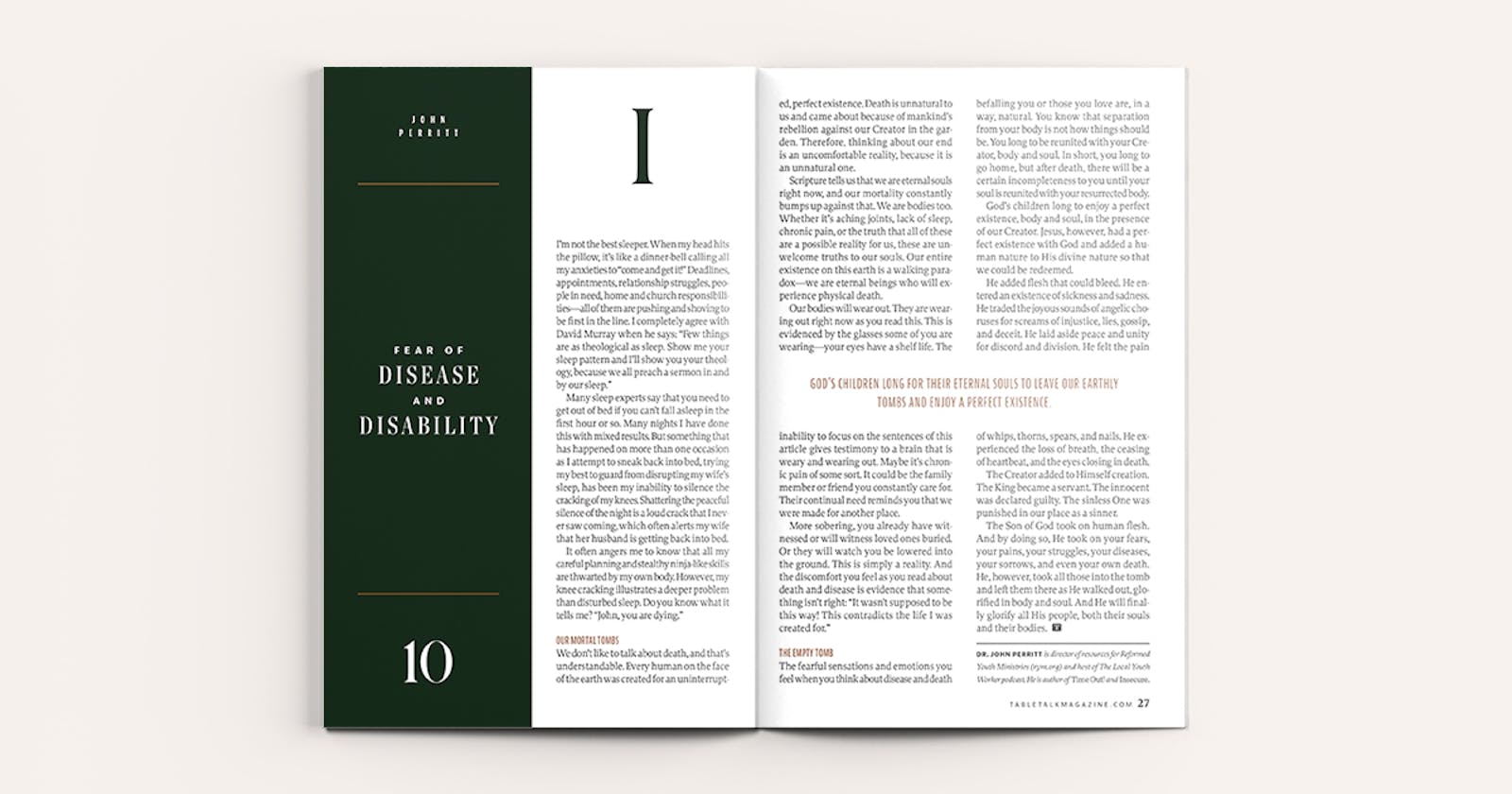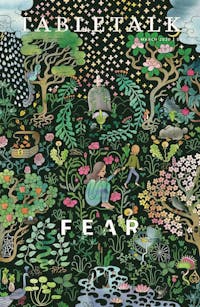
Request your free, three-month trial to Tabletalk magazine. You’ll receive the print issue monthly and gain immediate digital access to decades of archives. This trial is risk-free. No credit card required.
Try Tabletalk NowAlready receive Tabletalk magazine every month?
Verify your email address to gain unlimited access.
I’m not the best sleeper. When my head hits the pillow, it’s like a dinner-bell calling all my anxieties to “come and get it!” Deadlines, appointments, relationship struggles, people in need, home and church responsibilities—all of them are pushing and shoving to be first in the line. I completely agree with David Murray when he says: “Few things are as theological as sleep. Show me your sleep pattern and I’ll show you your theology, because we all preach a sermon in and by our sleep.”
Many sleep experts say that you need to get out of bed if you can’t fall asleep in the first hour or so. Many nights I have done this with mixed results. But something that has happened on more than one occasion as I attempt to sneak back into bed, trying my best to guard from disrupting my wife’s sleep, has been my inability to silence the cracking of my knees. Shattering the peaceful silence of the night is a loud crack that I never saw coming, which often alerts my wife that her husband is getting back into bed.
It often angers me to know that all my careful planning and stealthy ninja-like skills are thwarted by my own body. However, my knee cracking illustrates a deeper problem than disturbed sleep. Do you know what it tells me? “John, you are dying.”
Our Mortal Tombs
We don’t like to talk about death, and that’s understandable. Every human on the face of the earth was created for an uninterrupted, perfect existence. Death is unnatural to us and came about because of mankind’s rebellion against our Creator in the garden. Therefore, thinking about our end is an uncomfortable reality, because it is an unnatural one.
Scripture tells us that we are eternal souls right now, and our mortality constantly bumps up against that. We are bodies too. Whether it’s aching joints, lack of sleep, chronic pain, or the truth that all of these are a possible reality for us, these are unwelcome truths to our souls. Our entire existence on this earth is a walking paradox—we are eternal beings who will experience physical death.
Our bodies will wear out. They are wearing out right now as you read this. This is evidenced by the glasses some of you are wearing—your eyes have a shelf life. The inability to focus on the sentences of this article gives testimony to a brain that is weary and wearing out. Maybe it’s chronic pain of some sort. It could be the family member or friend you constantly care for. Their continual need reminds you that we were made for another place.
More sobering, you already have witnessed or will witness loved ones buried. Or they will watch you be lowered into the ground. This is simply a reality. And the discomfort you feel as you read about death and disease is evidence that something isn’t right: “It wasn’t supposed to be this way! This contradicts the life I was created for.”

The Empty Tomb
The fearful sensations and emotions you feel when you think about disease and death befalling you or those you love are, in a way, natural. You know that separation from your body is not how things should be. You long to be reunited with your Creator, body and soul. In short, you long to go home, but after death, there will be a certain incompleteness to you until your soul is reunited with your resurrected body.
God’s children long to enjoy a perfect existence, body and soul, in the presence of our Creator. Jesus, however, had a perfect existence with God and added a human nature to His divine nature so that we could be redeemed.
He added flesh that could bleed. He entered an existence of sickness and sadness. He traded the joyous sounds of angelic choruses for screams of injustice, lies, gossip, and deceit. He laid aside peace and unity for discord and division. He felt the pain of whips, thorns, spears, and nails. He experienced the loss of breath, the ceasing of heartbeat, and the eyes closing in death.
The Creator added to Himself creation. The King became a servant. The innocent was declared guilty. The sinless One was punished in our place as a sinner.
The Son of God took on human flesh. And by doing so, He took on your fears, your pains, your struggles, your diseases, your sorrows, and even your own death. He, however, took all those into the tomb and left them there as He walked out, glorified in body and soul. And He will finally glorify all His people, both their souls and their bodies.
